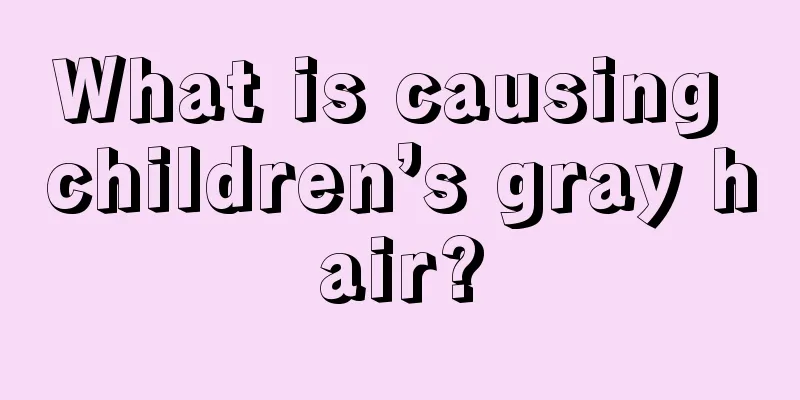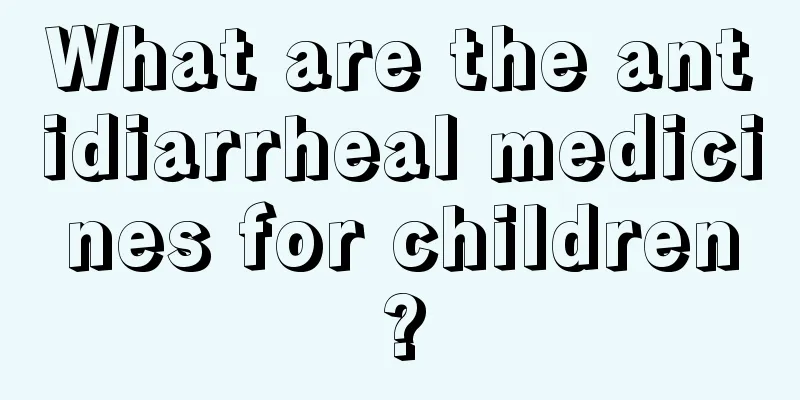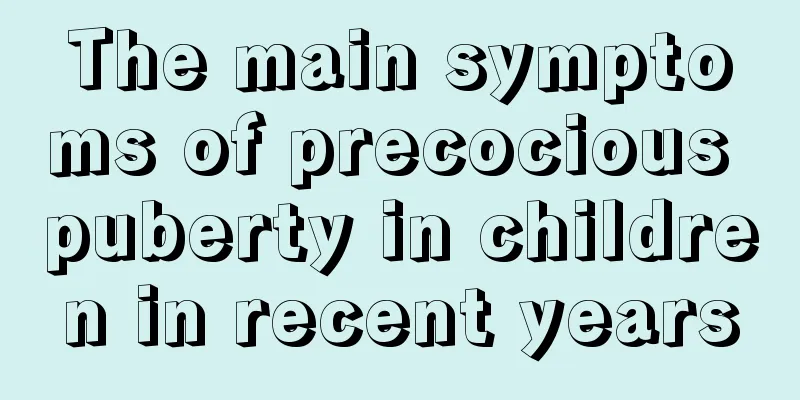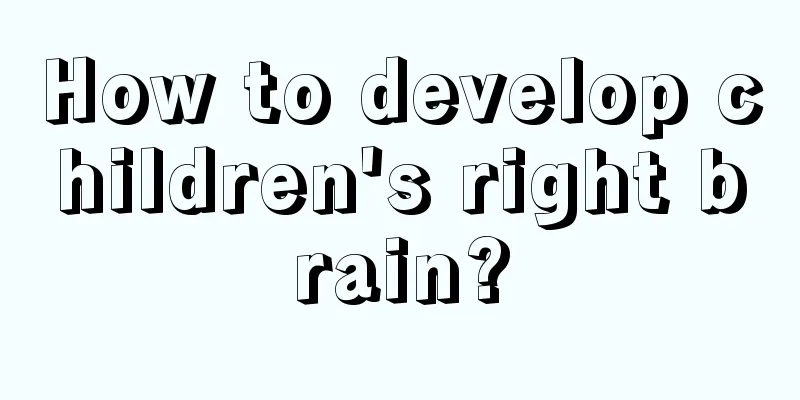Precautions for babies taking anthelmintics

|
As parents, we still remember taking anthelmintics when we were young. Now that we are mothers and have our own children, when should we give our babies anthelmintics? When giving anthelmintics to babies, how should we choose anthelmintics? Do all babies need to take anthelmintics? If they don’t need to take them, how do we judge under what circumstances the baby needs to take anthelmintics? What issues should the baby pay attention to when taking anthelmintics? We must resolve these doubts clearly. 1. When should babies take anthelmintics? Generally speaking, you can start considering taking anthelmintics for children over two years old. Deworming drugs not only expel roundworms, but also hookworms, pinworms and other parasites. Although dietary hygiene has improved, children can bring in a lot of bacteria and worm eggs when playing. It is sufficient to take deworming medicine once a year. 2. How to choose anthelmintic Of course, it is best to ask a doctor. If you buy it at a pharmacy, you must also tell them clearly who will be eating it, how old the child is, and how much he or she weighs. It is recommended to choose medicine that will not cause worms to be discharged, the most commonly used one is intestinal worm clearing medicine. 3. How to judge whether the baby should take deworming medicine 1. Check whether there are insect spots. Check the child's face, forehead, and nails for worm spots. What do worm spots look like? It is grayish white, small pieces, and looks like it has scales. If there are any, it means there are parasites in the stomach and you should get dewormed. 2. Do you often have stomach pain? Ask your child if he or she has stomach pain. If the child often complains of stomach pain at certain times and the pain feels like cramps and comes in waves, then there may be parasites in the stomach. 3. The child eats a lot but does not gain weight. If your child eats a lot but does not grow much, and this continues for a long time, you should suspect that there are parasites in his stomach. If he also suffers from stomachaches on a regular basis, then it is very likely that parasites are at work. 4. The most direct method is to take the child's stool to the hospital for testing. If there are parasites, eggs will be found in the stool. This is the most effective way to confirm whether there are roundworms in the baby's stomach. 4. Precautions for babies taking anthelmintics 1. Be sure to follow the doctor's instructions and take the medicine according to the dosage. Deworming medicine is somewhat toxic, so you must tell your doctor exactly how old your child is and how much he or she weighs. Make sure the medicine is given according to the dosage, and never give your child medicine without permission. 2. Choose to take it at night. When taking medicine, it is best to take it at night, because parasites eat at night. If you take medicine at night, the medicine will be absorbed by the parasites and the effect will be better. |
<<: Can the baby be vaccinated if he has diarrhea?
>>: Why are the soles of children's feet yellow?
Recommend
What are the ways to increase your child's height?
Nowadays, many parents are concerned about their ...
What is the cause of the sunken fontanelle in babies?
Some babies have a sunken fontanelle, but parents...
How to treat children's tooth decay
It is very common for children to have cavities. ...
What to do if your child is allergic to eggs
When the baby is 6 months old, you can start addi...
The baby's phlegm and dampness block the lungs, mainly because of it
It is very common for babies to have phlegm and d...
What is the correct method for children's vision correction?
Many people believe that children's eyesight ...
What are the tests for retinopathy of prematurity?
Retinopathy is relatively common in premature bab...
Is sunbathing useful for eczema?
Everyone knows that there are many skin diseases,...
What should I do if my baby has a runny nose?
Generally, children's immunity is very weak a...
What is the cause of the lump on my child's arm after vaccination?
The physical health of children is very important...
What to do if your child knocks out a tooth
Children are always the most naughty ones, and it...
What should I do if my child’s throat is always hoarse?
If a child's throat always has a hoarse sound...
Newborn baby crying when waking up
Why do newborns cry when they wake up? For newbor...
What to do if your baby doesn't cooperate with tooth fillings
In fact, many children like to eat sweets very muc...
Reasons for five-month-old babies to sweat
Many people have their own opinions about sweatin...









